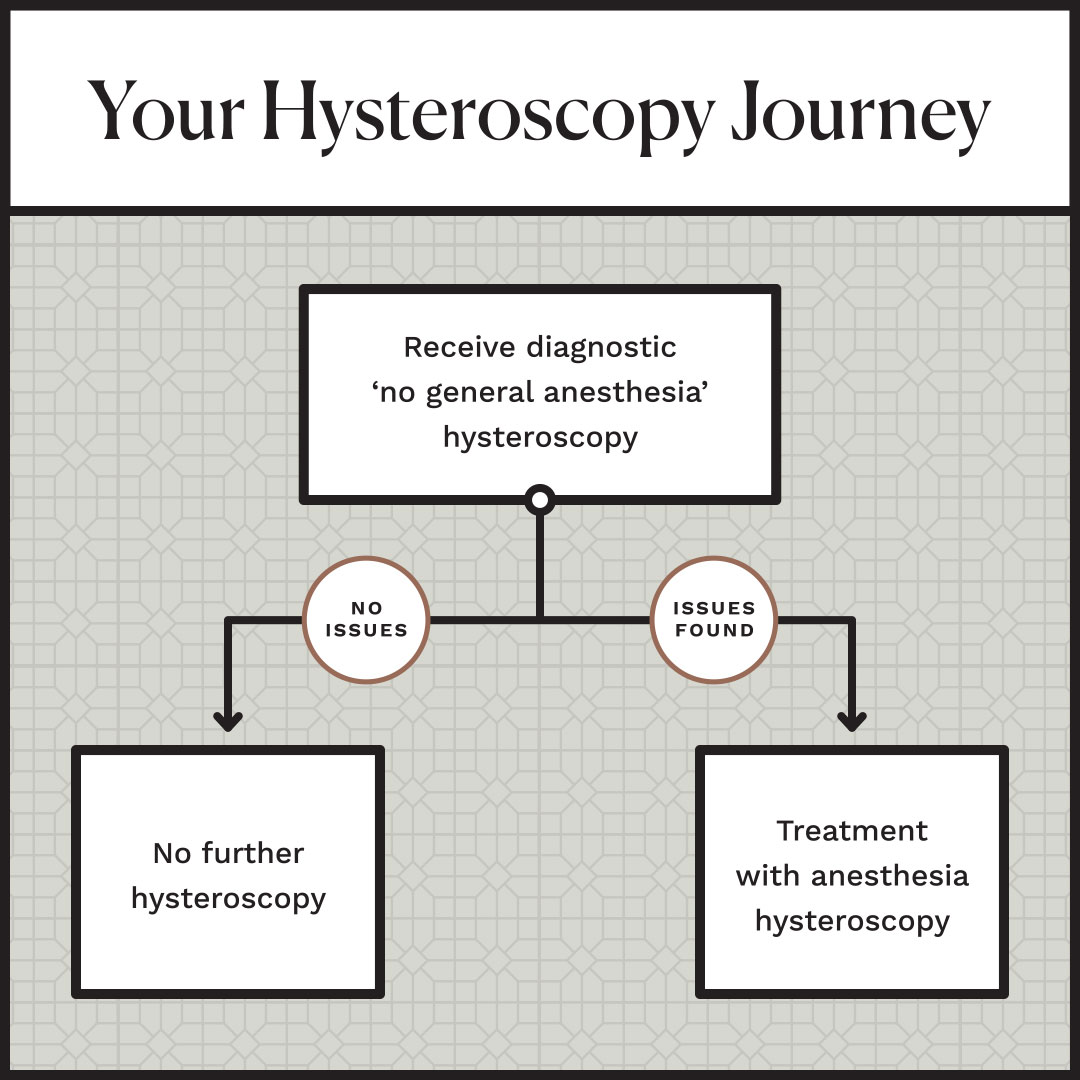Hysteroscopy is a vital part of the infertility diagnostic process as well as an infertility treatment
The Fertility Center of Las Vegas believes that reaching an accurate diagnosis is the key to developing the best treatment plan for each patient. As a result, our Las Vegas infertility clinic follows a comprehensive infertility diagnostic process when you visit one of our doctors. Part of this process involves a hysteroscopy.
This minimally invasive procedure allows our fertility specialists to visualize the inside of your uterus (womb), without making any incisions. Additionally, you don’t need to receive general anesthesia when undergoing this procedure for diagnostic purposes.
What does the infertility diagnostic process look like?
At our Las Vegas infertility clinic, all female patients will provide a medical history, undergo bloodwork, and receive a physical exam and ultrasound. In addition, our doctors will perform several other tests.
- Sonohysterogram (SHG or SIS) involves sterile fluid and an ultrasound machine. This test allows our doctors to evaluate the uterus, review the shape of the uterine cavity and see the ovaries. The test is performed by one of our doctors before the hysteroscopy is scheduled. If the doctor sees any uterine obstructions that might prevent embryo implantation during the SHG, then he or she will forgo the diagnostic hysteroscopy and schedule a hysteroscopy with anesthesia. This procedure allows them to treat the obstructions.
- Hysterosalpingo-contrast Sonography (HyCoSy) or Hysterosalpingogram (HSG) involves injecting a liquid into the uterus and viewing the cavity of the uterus and the fallopian tubes. This allows our doctors to see the shape of the uterine cavity and determine whether the fallopian tubes are open.
To help gather more information about your fertility, our doctors will also perform a hysteroscopy with a flexible scope and no general anesthesia.
What is a diagnostic hysteroscopy, and what does it look for?
This is an outpatient procedure to evaluate your uterus and uterine lining. Your doctor can often perform this procedure at our Las Vegas infertility clinic. The goal is to leave you with a pristine uterine cavity that will promote implantation and pregnancy.
To perform the procedure, your doctor will use iodine to clean the vagina and cervix. Your doctor will place a speculum in the vagina and gently dilate the cervix. Next, your doctor will place a small camera through the cervix and use saline (salt water) to expand the uterine walls for better visualization.
While examining the uterine cavity, your doctor will be looking for issues like fibroids and polyps. He or she will also look for a uterine septum (tissue dividing the uterus) and scar tissue. All these issues can interfere with pregnancy, so it’s important to identify and treat them early.
What happens if your doctor finds issues during the diagnostic hysteroscopy?
If your doctor finds an issue when performing this infertility diagnostic procedure, the next step is undergoing a hysteroscopy with general anesthesia to treat the problem. This procedure will be just like the first one, with two exceptions.
- You will receive general anesthesia to keep you comfortable.
- Your doctor will place surgical tools through the vagina and cervix to treat issues in the uterus, including fibroids, polyps and a uterine septum.
After the procedure, you will go home the same day. However, you should have someone drive you home and stay with you for the remainder of the day. Also, be sure to have ibuprofen and/or acetaminophen at home if you can take these medications. Additionally, heat packs and warm showers can help relieve any post-procedure discomfort.
You should call the office if you have any problems with heavy vaginal bleeding, nausea, vomiting, pain that is getting worse, fever or chills.
Our team recommends that you avoid placing anything inside the vagina for two weeks. Showers are safe, but you should avoid soaking in a bath or hot tub for two weeks after the procedure. Plan to engage only in light activity in the first few days after the procedure while you recover. The amount of time that your uterus will need to recover before trying to conceive will depend on the findings of the procedure.
To learn more about what to expect during hysteroscopy at our Las Vegas infertility clinic, contact us.








